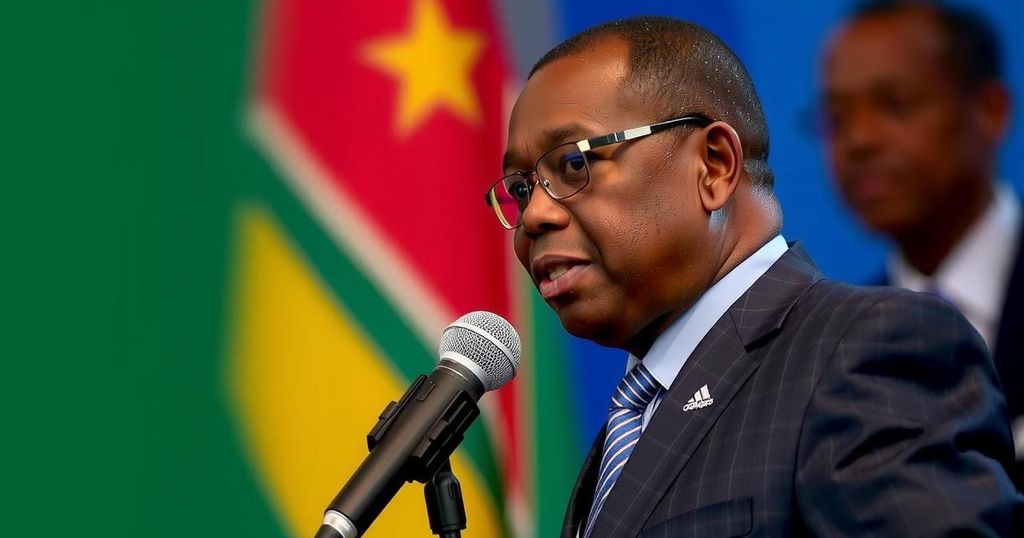Daniel Chapo Declared Winner of Mozambique’s Controversial Presidential Election
Daniel Chapo of the Frelimo party has been declared the winner of Mozambique’s presidential election, held on October 9, winning approximately 71 percent amid allegations of fraud and violence. The announcement coincided with unrest in the capital, where protests erupted against the ruling party’s practices. Frelimo has denied any wrongdoing, asserting the election results reflect the people’s will. This election marks a critical moment for Mozambique as Frelimo continues to navigate its long-standing political dominance and the socio-economic challenges facing the nation.
In a contentious electoral process, Daniel Chapo of the Frelimo party has been declared the winner of Mozambique’s presidential elections, held on October 9. The electoral commission announced that Mr. Chapo secured approximately 71 percent of the vote. His victory follows a tumultuous period marked by allegations of widespread fraud and violence. The election results were officially revealed amidst escalating unrest within the nation, which has been grappling with an ongoing insurgency in the Cabo Delgado region. The political climate in Mozambique has been increasingly fraught, with violent protests erupting in the capital, Maputo, where demonstrators accused Frelimo of orchestrating electoral fraud and of being complicit in the deaths of rival supporters. Despite these claims, Frelimo maintains that the electoral process accurately reflects the will of the electorate. Ludmila Maguni, a spokesperson for the party, emphasized, “Frelimo is confident that the results reflect the will of the people.” This election represents significant challenges for Frelimo, which has dominated Mozambican politics since the country gained independence from Portugal in 1975, navigating through civil strife and political turbulence. Daniel Chapo succeeds Filipe Nyusi, who has reached the constitutional limit for presidential terms. The implications of this election, particularly under the shadow of socio-economic disparities exacerbated by turmoil in resource-rich regions, pose critical questions about the governance and future stability of Mozambique.
The background of Mozambique’s recent presidential election sheds light on a country that has endured decades of political dominance by the Frelimo party. Since its independence, Frelimo has maintained its hold on power amidst various challenges, including a civil war in the late 20th century and ongoing issues such as poverty and unemployment, especially in resource-rich areas like Cabo Delgado. The electoral commission’s announcement of Daniel Chapo’s victory followed a highly scrutinized electoral process, marred by violence that points to deep-seated political tensions within the nation. The growing opposition to Frelimo’s authority signifies a critical juncture for Mozambique’s democracy and political landscape, especially in the context of rising insurgent activities and societal discontent.
In conclusion, the declaration of Daniel Chapo as the president of Mozambique amidst a backdrop of violence and allegations of electoral fraud highlights the fragile state of the country’s democracy. The protests and unrest surrounding the election underscore a growing demand for accountability and transparency in governance. As Frelimo faces increasing scrutiny, the new administration will need to address the significant socio-economic divisions that continue to challenge Mozambique’s progress.
Original Source: www.nytimes.com




Post Comment